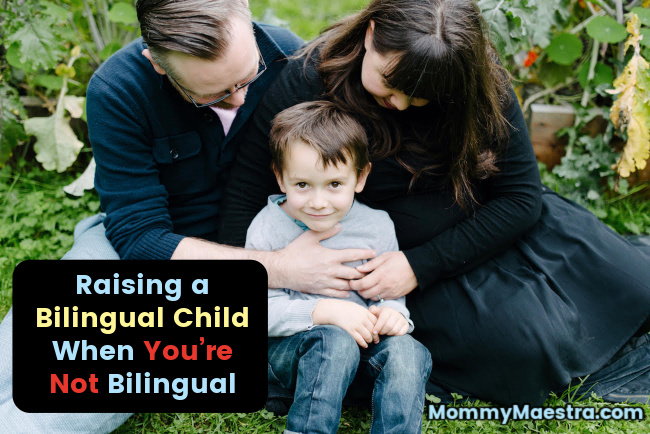The following is a guest post by Erin McGann. In this post she shares her experience with German, however, any language could be substituted.
I always wanted my son to learn a second language, fluently if possible. I grew up on the border of the French-speaking region in Canada, and although my French was quite good, I never felt confident speaking it. I didn’t want that for our son.
When he reached school age, we enrolled him in a French immersion school, and I was able to start speaking more French with him at home, though he was reluctant to speak to me in French and shy in the classroom. Two years in, we accepted a job transfer with my husband’s company and moved to Germany. None of us could speak German!
At this point my son was seven, and we chose a bilingual German-English school for him. Language immersion was one of the reasons we agreed to this big move – if it couldn’t be French, German would be a good second choice. However, we couldn’t help him much, despite taking language classes ourselves. He quickly outstripped our skills. We worked hard to support him, and now, five years later, he is comfortable chatting and playing in his second language, and his best friends are native speakers.
This is what I’ve learned about raising a bilingual child when you’re not bilingual yourself:
It’s a marathon, not a sprint
Something one of my son’s teachers from his French-language school told us was to not push too hard on the language at home at first. He’s concentrating on processing the second language all day at school, it’s exhausting. Let him relax when he’s off school. There would be a point when we could do that. I do find now I can speak German with him and he doesn’t even notice, but at the beginning he would beg us to speak English at home. This is a long process, it will come!
Don’t give up
Other people who don’t speak more than one language will find this whole thing confusing, and I encourage you to stop at the first signs of difficulty. It is difficult, learning a language to a high level is hard. Have patience, and hang in there. If you’re really concerned about your child’s progress, see a speech pathologist who is familiar with and positive about multilingual families. But I won’t lie, this is not an easy process and there will be rocky times.
Find support for your journey
You’re not alone though. The online language school Lingoda recently did a survey of US parents who are learning a language themselves, and 85% said they also wanted their child to learn another language. Look for language playgroups and storytimes if your child is younger, so they can connect with other kids speaking the minority language but also so you can connect to other parents who understand what you’re doing. There are lots of Facebook groups out there for kids’ language learning, but one of the best general ones is the Multilingual Parenting group. You’ll find parents with kids learning all sorts of combinations of languages there, and lots of support.
Get experienced one-on-one help
The thing that has helped the most with our language journey was finding a private tutor. We needed someone that could go over our son’s homework and answer questions about the language for him that we just couldn’t as non-native speakers. Small group classes can be helpful too, but there will be a point where they just need very directed help and feedback on their writing, for instance.
Let them teach you
What is it about correcting their parents that brings kids so much joy?! We did this from the beginning, getting our son to correct our pronunciation or look over our own language lesson homework. It brings him a lot of pride that he is the best German speaker in our family. This really helps to bring up when he’s feeling frustrated about school.
Watch movies, listen to music, read books
Don’t just leave the language learning to school and tutors though. Even if you’re not fluent, engage with media in the minority language. Watch movies together with the subtitles on, find some good playlists with songs you can learn to sing along to, and get them to read books to you. Ask lots of questions when you don’t understand something, and let them teach you. We watch German-language TikToks together and I get him to explain the jokes when I don’t understand!
It’s hard work, supporting your child as they learn a language beyond your own capabilities, but it’s worth it. They will have so many more opportunities to work, learn and play because you committed to helping them learn another language.
--
Erin McGann is a Canadian freelance writer focusing on travel, living abroad, parenting, history, and culture. After nearly a decade living in the UK, Erin settled in Heidelberg, Germany with her husband and son. Dragging her family to every castle and open-air museum is a favourite activity, along with sewing, archery, and historical reenactment. You can check out her travel blog, and follow her obsession with half-timbered houses on her Instagram account.

